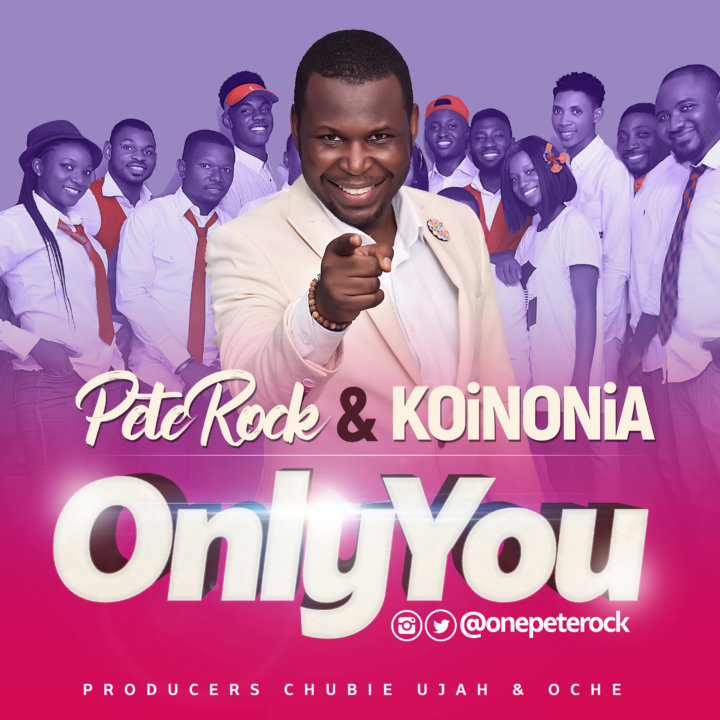
PeteRock & KOiNONiA release new praise single, “Only You” – a song that expresses intense love for God and pledges allegiance to Him alone.
A passionate song writer, a deep worshipper, an astute Preacher, and a profound Teacher of the truth of God’s Word, PeteRock is a Pastor with an Apostolic voice to this Generation.
He is pastor over the worship Team, KOiNONiA (A dynamic and unique Worship Team) and His love for God and His passion to see people worship inspired him to release this song “ONLY YOU” from the new album ‘KOINONIA’
Produced by Chubie Ujah & Oche, this praise song and will keep you dancing to the beauty of the revelation of God’s love.
DOWNLOAD AUDIO
ONLY YOU (Lyrics)
I lift my hands to worship
I raise my voice to worship
Only you, only you
I lift my hands to worship
I raise my voice to worship
Only you, only you
I clap my hands to worship
I clap my hands to worship
Only you, only you
I clap my hands to worship
I clap my hands to worship
Only you, only you
I sit me down to worship
I cross my legs to worship
Only you, only you
I sit me down to worship
I cross my legs to worship
Only you, only you
I jump around to worship
I jump around to worship
Only you, only you
I jump around to worship
I jump around to worship
Only you, only you
Only you, only you, only you
Only you, only you, only you
The post PeteRock & KOiNONiA – Only You appeared first on Latest Naija Nigerian Music, Songs & Video - Notjustok.
from Latest Naija Nigerian Music, Songs & Video – Notjustok
via EDUPEDIA
Comments
Post a Comment